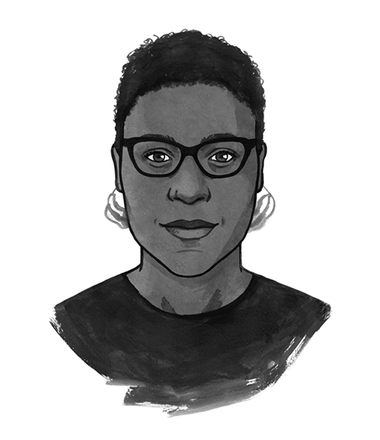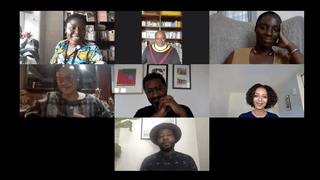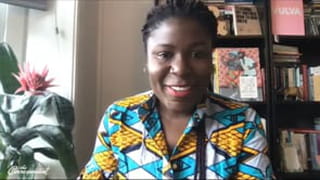
Almost half a year since Maaza Mengiste, Coréon Dú, Maame Adjei, Khalid Albaih, Lebogang Mashile and Blitz Bazawule graced our screens in The Correspondent’s first live event, I’m delighted to finally share the video of that conversation with you.
Here’s the context: On 25 May 2020, the very day that a Minneapolis police officer, Derek Chauvin, placed his knee on George Floyd’s neck for several minutes, killing the 46-year-old and sparking anti-racism protests that spanned the globe, we published a deeply affecting essay by Mengiste.
In it, the Ethiopian-American writer – whose latest novel is shortlisted for the 2020 Booker Prize – took on the collective grief of 2020 in a very personal way: through the story of her own father’s death and her physical distance from her family in Ethiopia. The essay was as much about the memories locked into photographs as it was about grief, with the author concluding about the former: “Memory can be a formidable ally. Light enough to be taken on a fragile boat towards a new life, and sturdy enough to endure the dizzying, cruel separations of this current pandemic.”
If news headlines are your only lens onto the world, we seem today to be living in a very different world than that of May 2020: protests in America’s streets have turned to dancing; a Covid-19 vaccine seems to be on the horizon; and hashtags celebrating 60 years of independence from colonialism in 17 African countries have been replaced with hashtags raising awareness about the violent repression of protests from Zimbabwe to Nigeria, the murder of school children in Cameroon, looming civil war in Ethiopia – and several other, mostly underreported crises.
But away from the headlines, our world continues to spin on largely the same axis: none of the systems of oppression that Covid-19 has brought into sharp relief have been upended. The work is certainly ongoing and much of it is being done – or amplified – by creatives, such as the ones who participated in our event on 11 June 2020.
“We know how to be riled up, and we know how to hit the streets. But your actions are not going to suffice in random bursts,” said Ghanian musician and filmmaker Blitz Bazawule, before adding that what’s necessary is “doing the quiet work that sustains”.
So, in this edited version of our 90-minute conversation, watch and listen to the speakers take on issues ranging from the tension between ownership of creative work and access to audiences; the role of the African diaspora and non-African allies; the multiplicity of African identities; and the disintegration of western power as made explicit by 2020’s multiple crises. The video quality isn’t always the best, but I hope you’ll agree that our speakers’ words resonate far beyond the industries and geographies in which they work.
Dig deeper
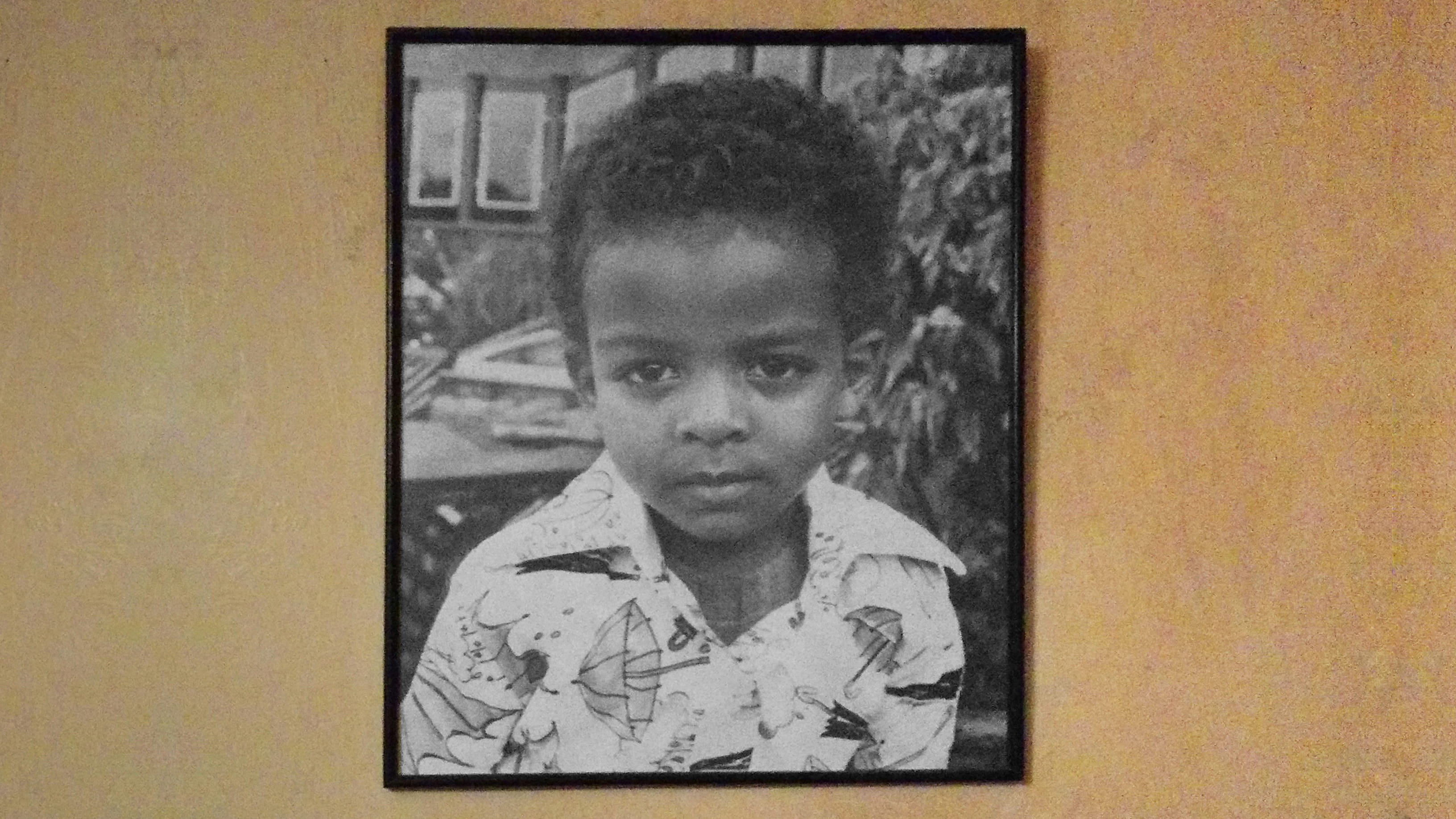 Trapping ghosts: photographs don’t lock us to loss, they remind us to live
The grief caused by death is similar to the pain of distance, but our photographs can help bridge the gap to our loved ones. The pictures we carry with us are a defiant refusal to believe that all our good times are behind us.
Trapping ghosts: photographs don’t lock us to loss, they remind us to live
The grief caused by death is similar to the pain of distance, but our photographs can help bridge the gap to our loved ones. The pictures we carry with us are a defiant refusal to believe that all our good times are behind us.
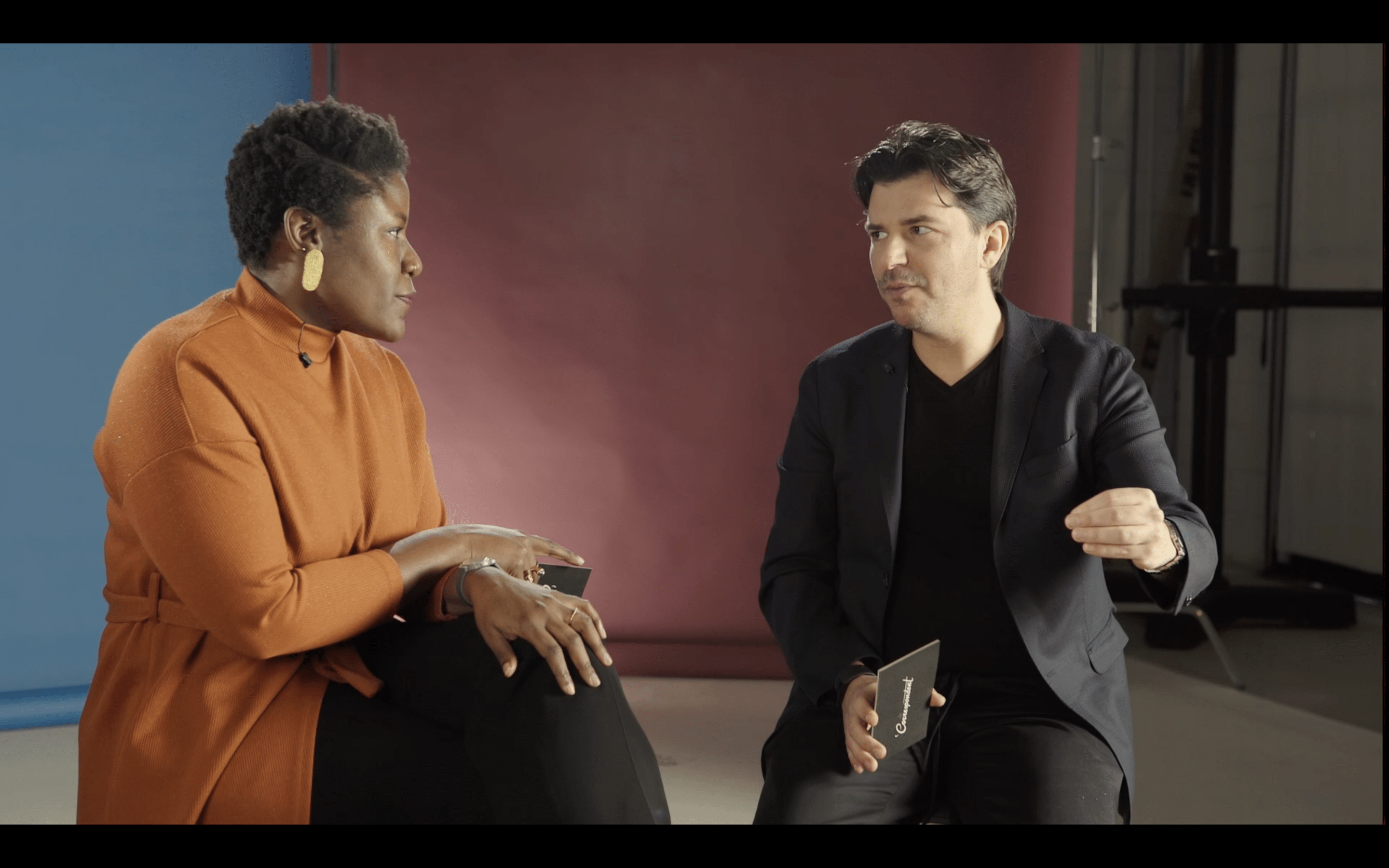 What is The Correspondent?
In a series of short videos, managing editor Eliza Anyangwe, and founding editor, Rob Wijnberg, answer some of the most frequently asked questions.
What is The Correspondent?
In a series of short videos, managing editor Eliza Anyangwe, and founding editor, Rob Wijnberg, answer some of the most frequently asked questions.

